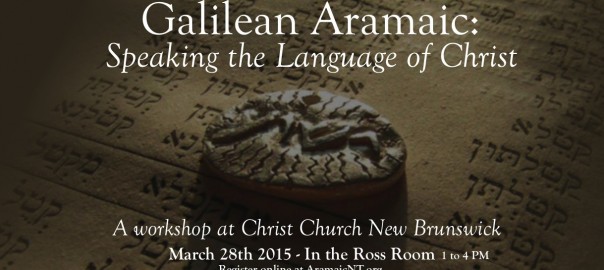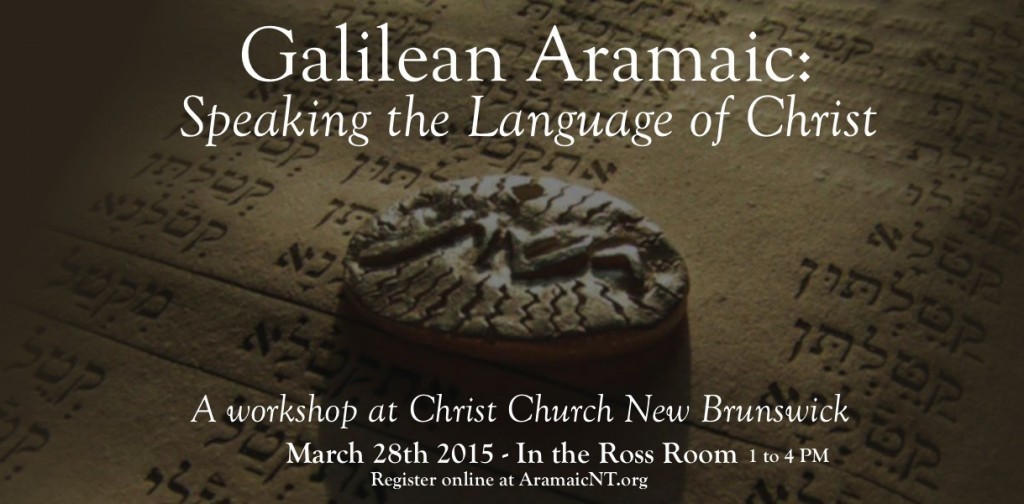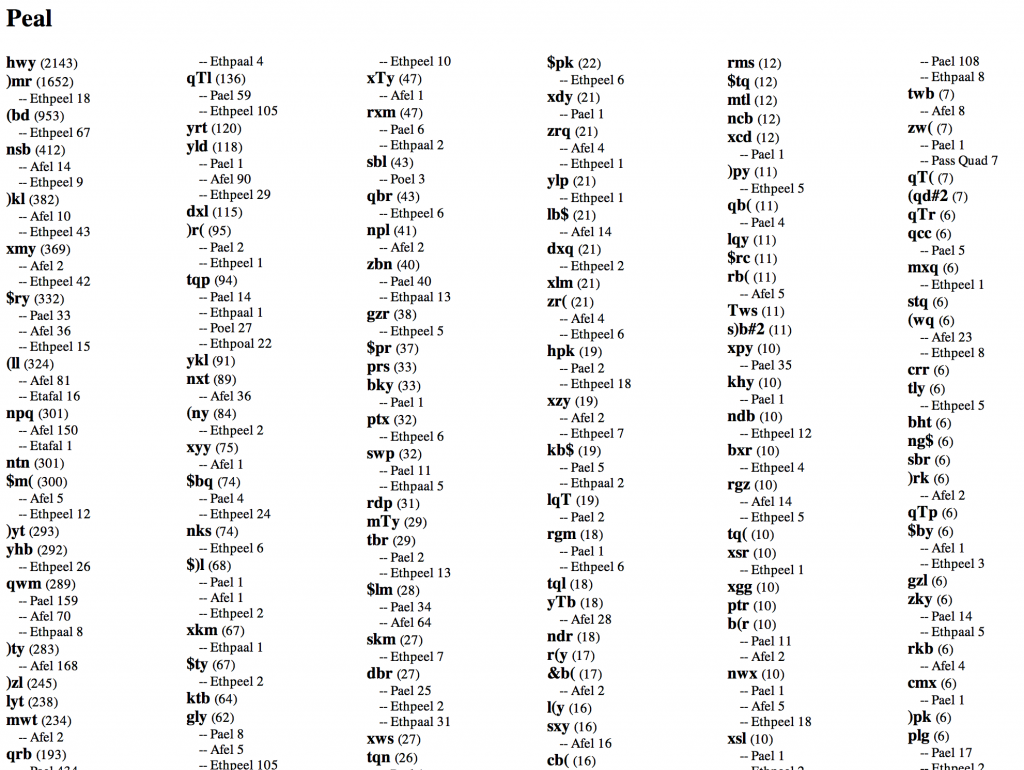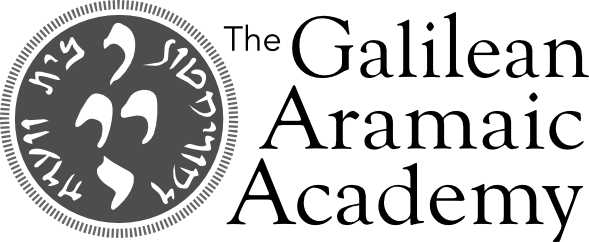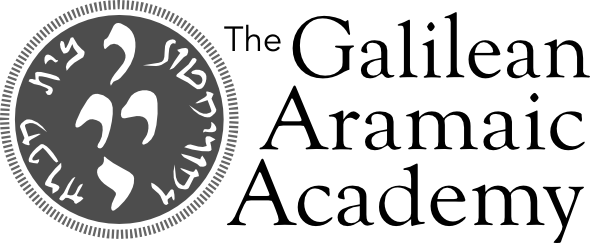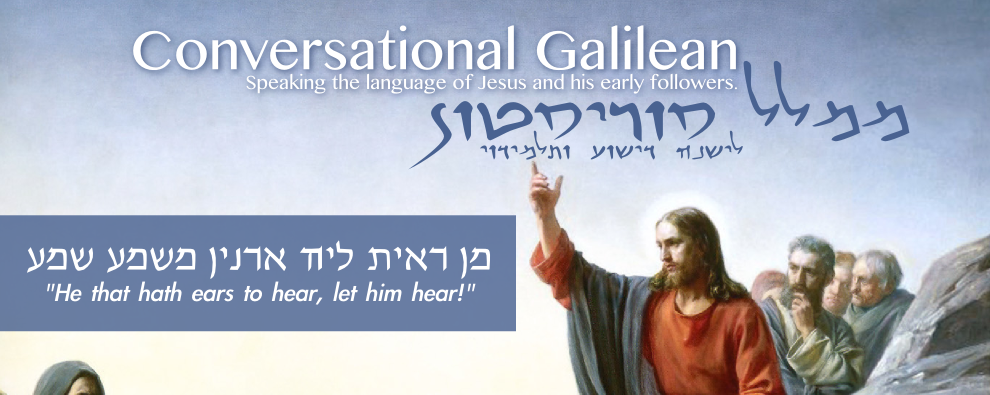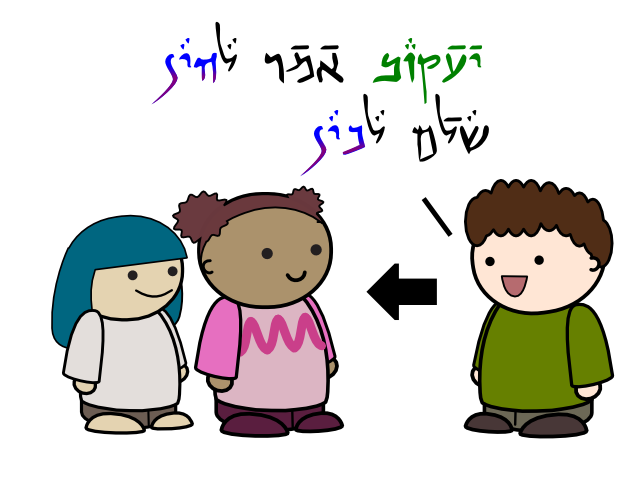
Most churches do a Passion Play this time of year, re-enacting the final moments of Jesus up to and including the crucifixion. Most of these Passion Plays tend to include Jesus’ final words as recorded in Matthew and Luke which appear in most Bibles transliterated as:
“Eloi! Eloi! Lama sabachthani?”
“How the heck do you pronounce *that*?” I am asked often enough. “Eh-loy eh-loy llama sab-ach!-thane-y?”
And my answer is: You don’t.
In truth, this phrase has been subject to a game of telephone, which started in Aramaic and twisted its way through Greek, and some German spelling conventions, before landing in English.
This phrase is an Aramaic translation of the beginning of Psalm 22, “My God, my God, why hast thou forsaken me? Why art thou so far from helping me, from the words of my groaning?”
As we can see from extant translations in other Aramaic dialects, in Jesus’ native Galilean Aramaic, it was most likely rendered:
אלהי אלהי למה שבקתני
əlahí əlahí ləmáh šəvaqtáni
(The funny upside-down e signifies a shewa, a vowel kind of like the a in “above.”)
When the Gospel writers were compiling their work in Greek, they ran into some interesting problems. Mainly that the Greek writing system had no way to express some of these sounds. It ended up with this (or something like it, as there is some variation from manuscript to manuscript):
ελοι ελοι λαμα σαβαχθανι
elü elü lama saḇaḥṯani
e-loo e-loo lema savakhthani
- In Greek, there was not a sufficient 1 to 1 relationship with Aramaic vowels. Galilean’s ə (shewa) and its open vowel a (patah) were under many circumstances differentiated solely by emphasis and were slightly colored depending upon what sounds fell nearby. In trying to approximate them, the Greek scribe chose what sounded the closest based upon Greek vocalization.
- The Greek alphabet has no way to indicate an “h” sound in the middle of a word, only at the beginning. So the “h” sounds in əlahi disappeared, and there was an unintended consequence: The two letters ο (omicron) and ι (iota) when placed together formed a diphthong, similar to the nasalized eu in French. In truth, if the diphthong were broken and the two vowels spoken separately with an “h” in the middle, they are very good approximations to the original.
- There was also no way to express an sh sound (above š) so it was replaced with what was closest: σ (sigma, an “s” sound).
- There was no “q” sound, which in Aramaic is a guttural “k” in the very back of the throat. It was replaced with χ (chi, a sound like clearing your throat).
- And finally, the particular quality of the t was closer to their θ (theta) than to their τ (tau), so it was replaced with the former, softer sound.
Now when the Bible was translated into English, it went through yet another transliteration… but this time from the Greek. It looked (for the most part) like this:
Eloi, Eloi! Lama sabachthani?
How did we arrive at this from the Greek? Greek transliteration into English made use of the following conventions:
- Again, Greek vowels aren’t at all 1:1 with English vowels — they represented different sounds — but their cognates in transliteration were very well established.
- ε and η → e,
- ο and ω→o,
- ι→i,
- α→a,
- υ→y or u,
- etc.
- The use of these transliterations actually broke up the οι diphthong in reading — so that was a step back in the right direction.
- The letter χ (ḥ, chi) is, like in German transliteration or Scottish, rendered as “ch,” as that digraph ch in makes a similar sound.
- The letter θ (theta) is transliterated as “th” as that’s the closest sound in English, although the quality of it is not nearly as breathy.
So there you have it.
Peace,
-Steve

